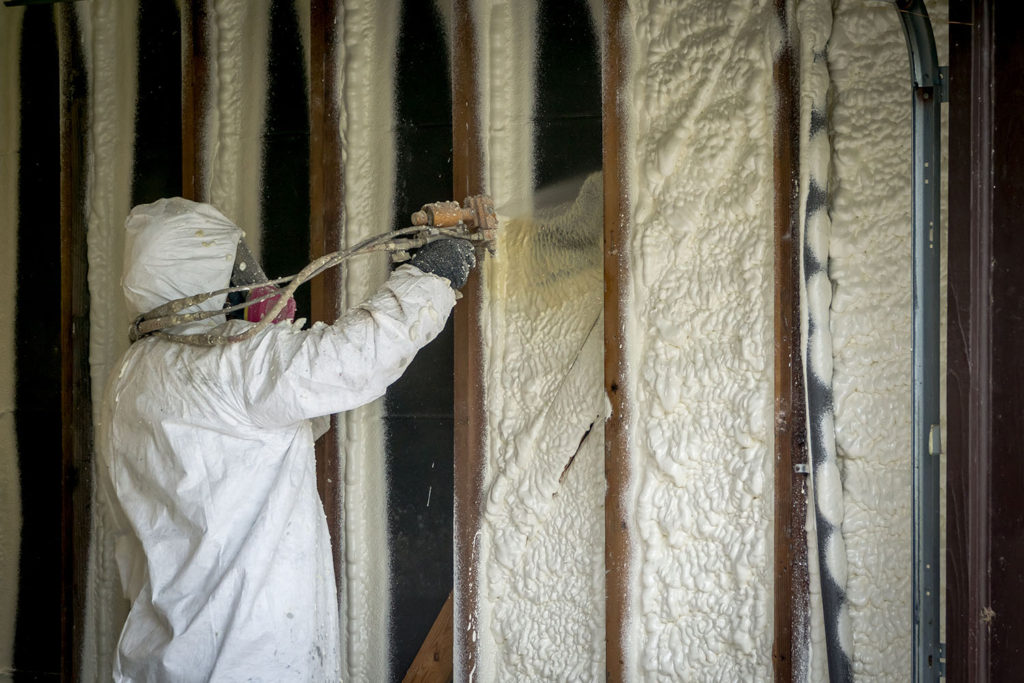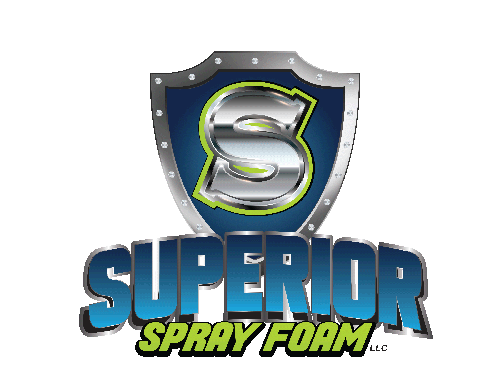10 Major Benefits of Spray Foam Insulation

- Cooling and Heating Benefits of Spray Foam Insulation
One of the unique abilities of spray foams is getting into small cracks and crevices. Once the foam is applied directly into the cracks, it expands and dries quickly while blocking air and water.
Foam insulation isn’t just a blockade for air and water, but for heat and cold as well, and can lower your heating and cooling bills. Foam insulation may be more expensive than other types of insulation, but it saves you money on bills in the long-term.
- Noise Reduction / Soundproofs your home
Have you ever wondered how the new neighborhood will be? What if the neighbors aren’t a quiet, lovely couple in their 60s but instead young adults who party? Open cell spray foam has the ability to significantly reduce noise. The open cells inside the foam minimize more noise than other types of insulation.
Imagine peace and quiet as you relax after a long day and an uninterrupted night’s sleep. Imagine if cars didn’t rev their engines down your street, your neighbors didn’t throw loud parties, and planes didn’t fly overhead. Imagine complete, wonderful silence. You cannot control the sources of noise around your home, but you can control whether the sounds around you disrupt your routine and rest. Air cavities and hollow spaces in your home walls and ceilings conduct noise from outside. You can fill these enclosed areas with insulation that is specially made to dampen and reduce sound transfer. Just like the walls of a drum resonate a beat; your walls reverberate with exterior blasts, bangs, and babble.
- Reduces the amount of pollen and Allergens that infiltrate the structure
It’s hard to believe but a good portion of pollens and allergens found in a given house did not get there through an open window or door. One of the benefits of spray foam insulation is reducing the amount of pollen, or allergens that get through the walls. By insulating your exterior walls with spray foam insulation you virtually eliminate air leaks and the pollens or allergens that they allow in.
Due to the fact that the foam reaches cracks and crevices, the air cannot penetrate the walls, as it does with other types of insulation. By reducing the number of allergens that get into the building, you help those who suffer from allergies or respiratory conditions. Less air getting in, fewer sneezes.
Offices insulated with spray foam insulation make workers happier and more productive. Insulation inside your home can save you money on medical bills too.
- Prevents Bugs, Insects, and Small Rodents from Getting Into Your Home
The tiny holes in your building structure are an open invitation to ants, bugs, and small rodents. Fortunately, the small cracks and crevices can be filled with spray foam. Closed cell spray foam is your best bet if you are looking to create a barrier against the tiny intruders.
Once the spray foam gets into the small crevices, it gets hard. A hard barrier deters rodents, and the insects. By keeping away insects and rodents, you are also reducing the chances of getting sick from rodent waste.
- Provides an effective air and moisture barrier
Air Barrier – No matter how snugly that roll of fiberglass fits into the space it will always leave some room around the edges and at the seams for air to infiltrate. Not so with spray foam. Spray foam pushes itself into even the tiniest crack or crevice. Air simply has nowhere to go.
Moisture Barrier – While it’s important to seal your home against the wind it’s just as important to seal it against moisture. While most forms of insulation do a poor job of preventing moisture from infiltrating the home spray foam stands tall against moisture. Your entire house will be drier, healthier and more comfortable.
- Prevents the Growth of Mold and Mildew by eliminating moisture
Both open cell and closed cell foam insulation prevent moisture from entering through the walls of your building through air convection currents, water in the air which can build up, condense and encourage mold build-ups. Holes and openings in traditional insulation types allow in moisture. Not only does spray foam eliminate this risk, but it is made of chemical compounds that do not provide food for molds, spores and bacteria. Even though both types of foam reduce the buildup of condensation, the closed cell spray foam works like a barrier against large quantities of water. The less water gets through your walls, the smaller the risk of developing health issues due to mold and mildew.
- Adds enhanced structural integrity to walls, floors and ceilings
A house is only as strong as its frame. Due to its density and hardness, closed cell insulation can actually strengthen the structure of your walls. Most forms of insulation do nothing to enhance the ability of the home to stand up to Mother Nature’s wrath. By grabbing hold of walls and floors by expanding into and filling cracks and crevices spray foam essentially becomes one with the surface you spray it on, adding its strength to that of the wall, floor or ceiling.
Every building is built after a code that requires the walls to meet a minimum load bearing standard to hold the building together. However, the minimum standard doesn’t take mother nature into consideration. Strong winds, heavy snow, and earthquakes can be quite a challenge. One of the benefits of spray foam insulation is that it gets everywhere and it holds everything together as a strong glue. Insulating your attic with closed foam might save your roof during storms. The additional layer of protection to your walls can increase the value of your building.
- Lasts the Lifespan Of Your Home
Fiberglass and Styrofoam insulation aren’t long-term solutions. Fiberglass sags and bunch, while Styrofoam breaks over the years. These types of insulation need to be replaced over time.
On the other hand, spray foam insulation doesn’t sag or break over extended periods of time. Spray foam does not degrade and can therefore last indefinitely. It is important to keep this in mind as you weigh you options because your investment in spray foam will last much longer than other insulations which will require retrofitting in the future. Even though the initial investment may be larger, spray foam saves you money in long-term.
- Will remain effective even if it gets wet due to a burst pipe or flood
If a pipe bursts or your home is subjected to flooding the insulationin your walls that got wet will need to be ripped out and replaced. Unless it was spray foam. Spray foam insulation is impermeable to water and retains its insulating capabilities regardless of how wet it gets.
- Eco-friendly
I have some good news for those who are concerned with keeping their households “green.” Spray foam reduces energy consumption and protects your building against mold and mildew growth. Since it’s longer lasting than any other type of insulation, it consumes less materials. During the winter, it protects your home from the cold and moisture. During the summer, it protects it from heat.
Whether your building is old or new, everyone will benefit from the advantages of spray foam insulation.
Even though the initial investment is bigger than other types of insulation, it actually saves you money on your bills.
